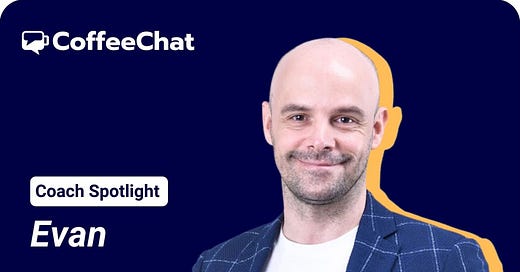✨ Coach Spotlight: Evan
Evan is an Executive Coach based in Cyprus. During his career, he has managed more than 500 employees across 8 countries and led companies to expand across the Asia Pacific region by successfully crafting the right company culture and leading people from the front.
What motivated you to become a coach?
The feeling of helping others to develop and improve. The feeling of contribution, sharing, giving, helping. Giving activates the parts of the brain related to pleasure, trust, and relationships with others. We secrete important feel-good chemicals like serotonin, dopamine, and oxytocin — a rush that’s often referred to as the “helper’s high.”
What was one of your biggest learnings while training to become a coach?
Asking the right questions to uncover the real needs of the individual clients or companies. Often people think they need support in area X, but after the initial screening interview, the challenge may by Y.
In your work, what are the biggest differences in experiencing 1:1 vs group coaching?
Private one-on-one coaching covers more mindset and more behavioral coaching. For example, while my group program touches upon mindset, it’s not the only focus. The main focus is more practical and tactical. In a private setting, there’s more room to explore emotional blocks and thought patterns. You can also more easily see how clients sabotage themselves and address it.
What do you think prevents more professionals from seeking out their own coach?
Knowledge about the coaching industry and how a coach can help, procrastination, and ego. Regarding executive coaching, the top reason is that CEOs, leaders, sales and business professionals, and managers don’t hire coaches because they believe they don’t need them. They are happy with the results they are getting, satisfied with the skills they have, and content with their life as it is. Or they are do-it-yourselves – they believe they can develop the skills they need on their own, can get better results by working harder, or can figure out for themselves how to turn around what is broken or not working at all. Or they believe that engaging a coach is a sign of weakness rather than a strength.
How have you seen companies engage similarly and differently with the concept of coaching across the different regions you work in?
Yes. In the USA for example the word coach is more popular. Executives can say among themselves: ‘’Hey, why don’t you hire a coach to help you?’’, while in some other countries the word coaching or the even the concept is still unknown.



